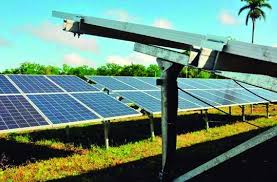
Camagüey, March 24th. - With the talent and commitment of its professional community, the University of Camagüey (UC) Ignacio Agramonte Loynaz is now actively participating in the national program for the development of renewable energy sources (RES), a strategic priority for Cuba.
On its official Facebook page, the academic institution highlighted the contributions of fourth-year electrical engineering students participating in the construction of the Luaces Photovoltaic Park in the municipality of Vertientes.
This project is part of three solar parks planned for the province, key to diversifying the country's energy mix.
Ricardo del Risco, dean of the UC Faculty of Electromechanics, explained that the young people collaborate on technical tasks such as grounding, certifying panel polarity, and controlling the angle of inclination.
"It is a significant undertaking requested by the highest leadership of the Cuban Communist Party in the territory," he emphasized.
Cuba's policy of migrating to the FRE takes on particular relevance given the global energy crisis and fossil fuel limitations, exacerbated by the U.S. economic blockade.
For developing nations, access to clean energy not only guarantees environmental sustainability, but also energy independence and security.
In Cuba's case, the commitment to solar, wind, and biomass energy seeks to reduce dependence on imports and mitigate the frequent blackouts that affect the population.
According to official data, the country aims to generate 37 percent of its electricity from renewable energy sources by 2030, a goal that requires specialized training and partnerships between universities and the productive sector.
The UC, with its qualified workforce, demonstrates how higher education institutions can be pillars in this process.
"Science and innovation are fundamental tools for addressing energy challenges," said Del Risco Alfonso, highlighting the connection between academia and social needs.
Experts agree that, for countries in the Global South, REFs represent a path to equitable development and climate resilience. Cuba, despite having limited resources, is making progress in this field with projects like Luaces, where future Camagüey’s engineers gain practical experience while contributing to national well-being.
The University of Camagüey, true to its motto of science and conscience, thus reaffirms its role in training professionals committed to the nation's challenges.
Its integration into the energy strategy reinforces the message that, in the face of adversity, unity and knowledge are the driving forces of progress. (Text and photo: PL)